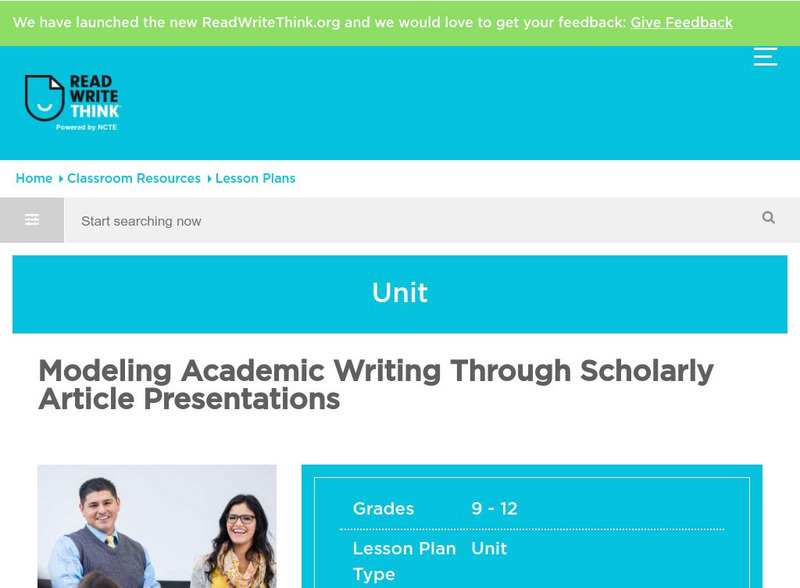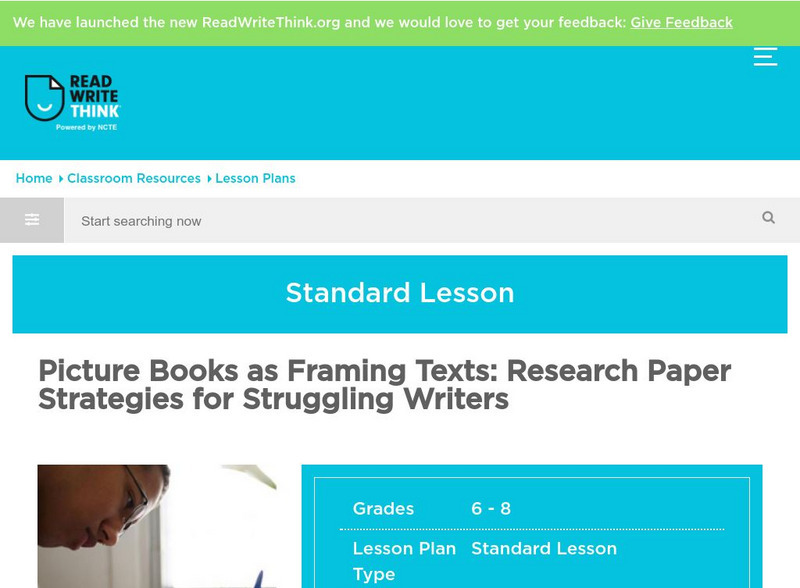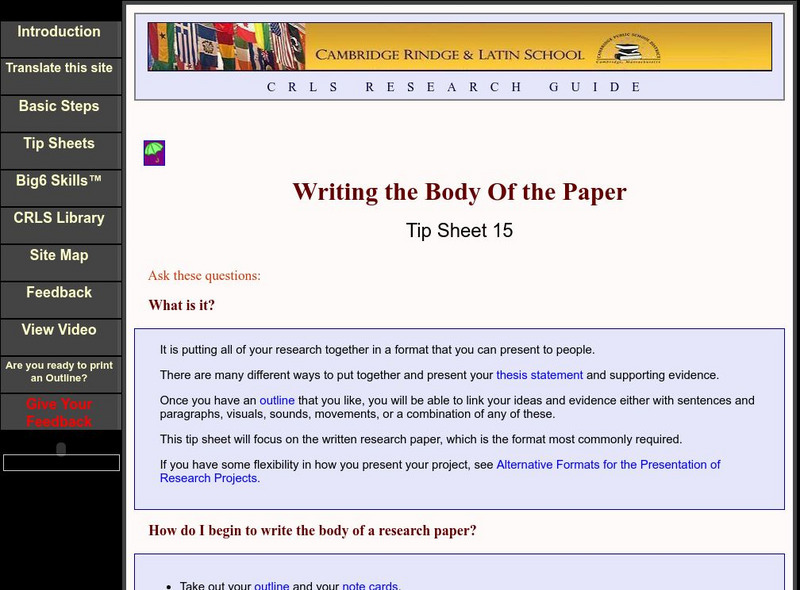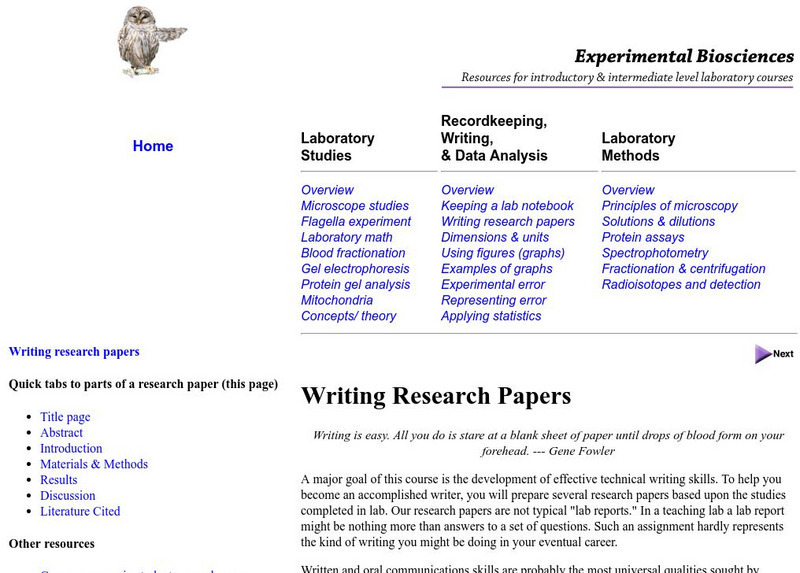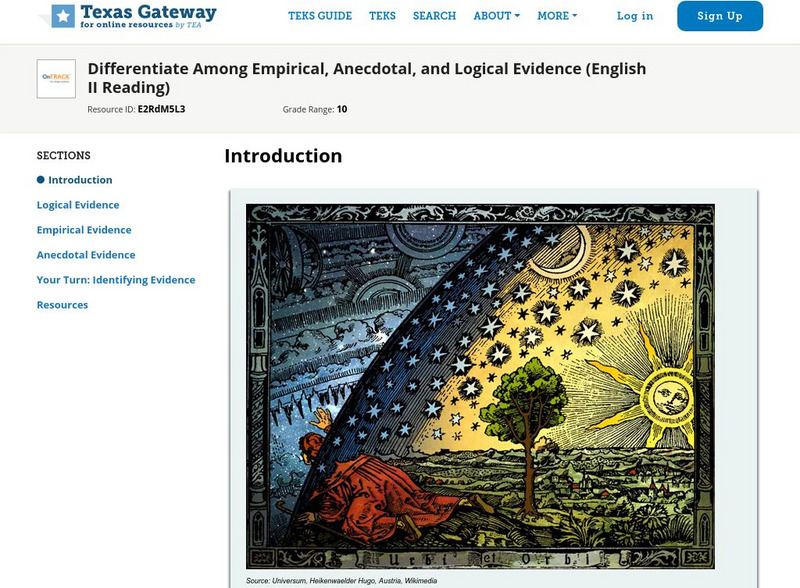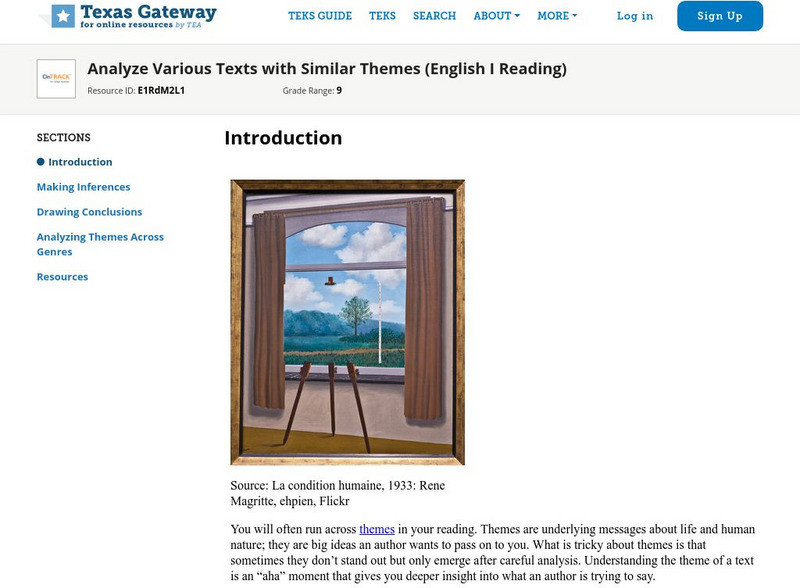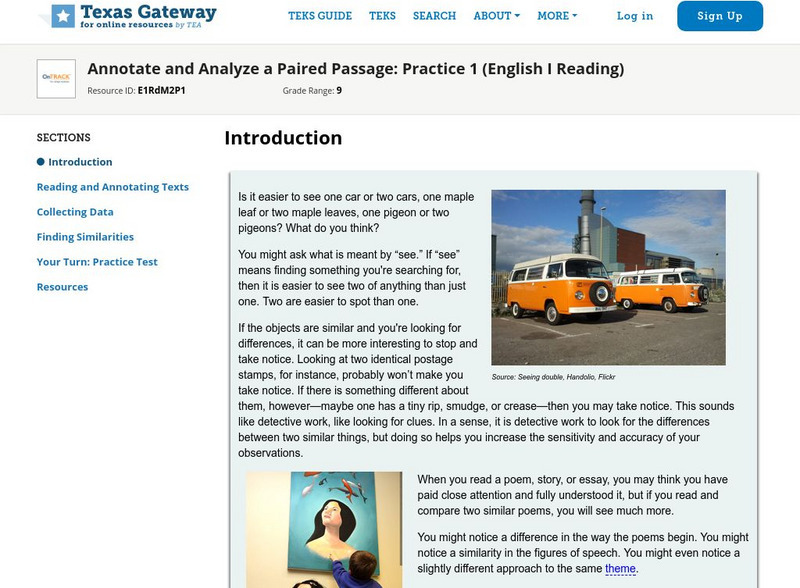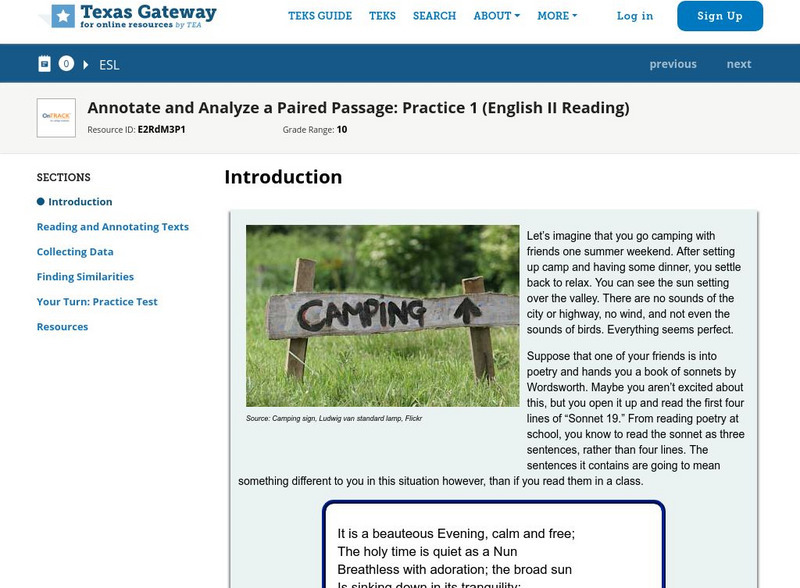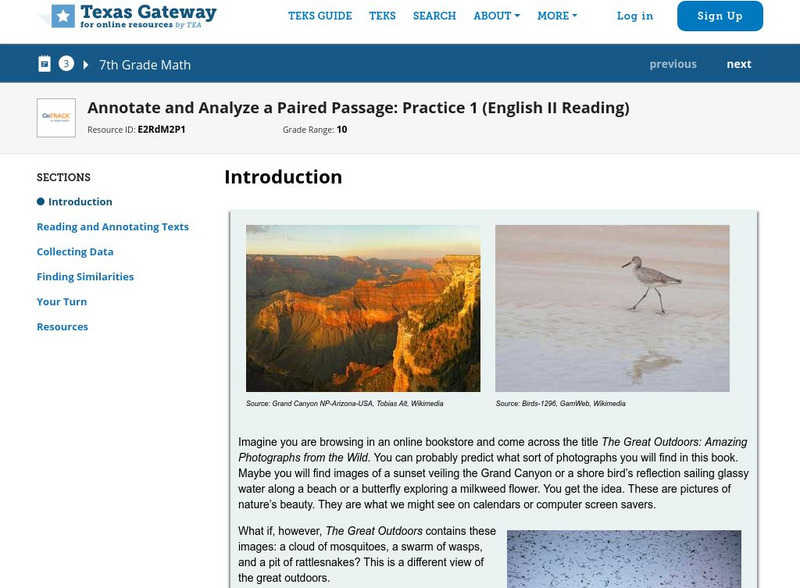Houghton Mifflin Harcourt
Holt, Rinehart and Winston: Writer's Model: Literary Analysis Example 3
This seven-page essay provides an example of a literary analysis essay. Clicking on the "Writer's Guide" link in the upper right-hand corner of the page enables the user to get tips, directions, and explanations on the essay.
Education Development Center
Making Mathematics: Mathematics Research Teacher Handbook: Getting Information
Information for teachers on teaching students how to research and write on mathematical topics. Includes tips for active reading, researching online and journal sources, and conducting interviews to gather information.
University of Wisconsin
University of Wisconsin: Writing Center: Writing a Research Report
Learn how to write research papers. Includes an eight-step writing handout, information on quoting and paraphrasing, and tips for writing annotated bibliographies. Click on the side links to access some of these resources.
Northern Virginia Community College
Northern Virginia Community College: How to Analyze Literature
In addition to briefly explaining the reason for analyzing a work of literature, this site provides the definition of key terms used in literary analysis. W.11-12.9a Amer Lit 18th,19th, 20th cen/Analy
Other
Simpson College: Writing Assistance: Research Papers
This resource provides writing assistance to users, including an area about research papers.
Grammarly
Grammarly Handbook: Organization
A list of the six parts of a thesis paper with links to more information on each.
ReadWriteThink
Read Write Think: Modeling Academic Writing
Students prepare an already published scholarly article for presentation, with an emphasis on identification of the author's thesis and argument structure.
ReadWriteThink
Read Write Think: Reader Response in Hypertext: Making Personal Connections
Young scholars write a narrative of place, a character sketch, an extended metaphor poem and a persuasive essay then link all four texts to quotations they have selected from a novel.
ReadWriteThink
Read Write Think: Improving Student Writing Through Critical Thinking
Contains plans for a lesson about writing draft letters, or reflective letters about pieces of writing that students are submitting to an instructor. In addition to objectives and standards, this instructional plan contains links to...
ReadWriteThink
Read Write Think: Research Paper Strategies
Students use picture books in this instructional activity to find ideas for research paper topics and structures. Through the use of these resources, students are able to shape content in a much more meaningful way.
Brown University
Brown University: Critical Writing and Thinking
Resource explains exactly what critial writing and thinking are, questions to help you think critically, paper writing tips, troubleshooting, and more.
Other
Concepts and Practices for Writing Courses: Interpreting Literature
This tutorial surveys the way readers should interpret literature or text in symbols, syntax, meaning, and the like. The article features a Literary Toolkit for Analyzing Literature.
Cambridge Rindge & Latin School
Cambridge Rindge & Latin School: Writing the Body of a Research Paper
An excellent tip sheet on how to write and create the bulk of a research paper: the body includes in-depth information, examples, as well as links to earlier steps in the process such as thesis statements, notecards, outline,...
Goshen College
Goshen College: Literary Analysis Guide
This resource not only explains how to analyze a text, but also, provides student examples of literary texts. W.9-10.9b Research/Argum, RI.11-12.5 Evaluate text structure
Rice University
Rice University: Writing Research Papers
This site presents information about the necessary parts of a scientific research report. It also contains a sample abstract and introduction.
Joe Landsberger
Study Guides & Strategies: Elements of a Research Paper
All the basics of writing the research paper are presented here very succinctly. Links to more in-depth looks at various steps are provided.
Texas Education Agency
Texas Gateway: Differentiate Among Empirical, Anecdotal, and Logical Evidence
[Accessible by TX Educators. Free Registration/Login Required] Distinguish among different kinds of evidence in a text that supports conclusions and arguments in texts.
Texas Education Agency
Texas Gateway: Analyze an Argument: Practice 1 (English Ii Reading)
Analyze the quality, relevance, and credibility of evidence that supports or opposes an argument.
Texas Education Agency
Texas Gateway: Analyze Various Texts With Similar Themes (English I Reading)
You will learn how to make inferences and draw conclusions about similar themes in various texts by finding supporting evidence within the texts.
Texas Education Agency
Texas Gateway: Annotate and Analyze a Paired Passage: Practice 2
Read and annotate paired texts in order to make inferences, draw conclusions, and synthesize ideas and details using textual evidence.
Texas Education Agency
Texas Gateway: Annotate and Analyze a Paired Passage: Practice 1
Read and annotate paired texts in order to make inferences, draw conclusions, and synthesize ideas and details using textual evidence.
Texas Education Agency
Texas Gateway: Analyze an Argument: Practice 1 (English I Reading)
Analyze the quality, relevance, and credibility of evidence that supports or opposes an argument.
Texas Education Agency
Texas Gateway: Annotate and Analyze a Paired Passage: Practice 1
Read and annotate paired texts in order to make inferences, draw conclusions, and synthesize ideas and details using textual evidence.
Texas Education Agency
Texas Gateway: Annotate and Analyze a Paired Passage: Practice 1
Read and annotate paired texts in order to make inferences, draw conclusions, and synthesize ideas and details using textual evidence.





